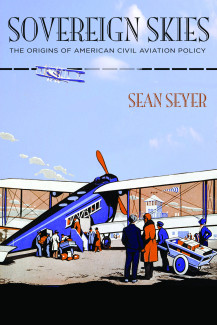Newsroom
Filter
Just Lucky
By Paul A. Lombardo I began my book Three Generations, No Imbeciles: Eugenics, the Supreme Court and Buck v. Bell, with an account of my introduction to the Buck case in 1980, when I saw a newspaper story about a lawsuit brought by someone who had been...

Getting Under Our Skin: The Cultural and Social History of Vermin
By Lisa T. Sarasohn Let’s be perfectly clear: I despise bugs, even the supposedly socially useful ones, like bees or spiders. And I particularly don’t like the nefarious ones that I feature in my book, Getting Under Our Skin: The Cultural and Social History of...

DSM: A History of Psychiatry’s Bible
The Diagnostic and Statistical Manual of the American Psychiatric Association has been called “the most important book of the twentieth century.” While this evaluation is debatable, the history of the DSM is certainly one of the most interesting stories in...

New Horizons for Early Modern European Scholarship
Since the consolidation of History as a professionalized discipline in the nineteenth century, the study of early modern Europe has stimulated some of its most provocative and creative scholarship. From Leopold Ranke to Jakob Burkhardt to Fernand Braudel to...

The Making of "The Making of a Tropical Disease" – The Sequel
I was approached by my editor at the Johns Hopkins University Press about preparing a revised second edition of my book The Making of a Tropical Disease: A Short History of Malaria. The book was the first volume in the Johns Hopkins Biographies of Disease...

Swansea Copper: A Global History
We wrote Swansea Copper out of a sense of frustration. Histories of global trade and industry seemed to have no place for copper. Cotton, sugar, tobacco: yes. But copper? What could copper tell us that we didn’t already know about global industrial history...

Physico-theology: Religion and Science in Europe, 1650-1750
The drive to reconcile religion and science has a long history that extends to this day. It was especially pressing in the period 1650-1750, when religion was a matter of strong commitment and science was being radically transformed by new mathematical...

Humanism and Science as a Window into the Culture Wars in America
America’s relationship to science is fraught with turmoil. Images of science have long held an ambiguous place in our collective psyche: from Frankenstein’s monster to the moon landing, people have characterized it in both nefarious and glowing terms. Our...

Inscriptions of Nature: Geology and the Naturalization of Antiquity
I wrote Inscriptions of Nature because I felt the need to write a political history of deep time, geohistory, and nature. Deep history, that is the history of the evolution of the earth, is often represented as a purely natural phenomenon; of movements of...

Thinking Geographically about Science and Knowledge—and Why It Matters
It is hard to distil any work and its implications to an essence. But, often, we have to: time may be pressing; audiences (and funders) need convincing—and sometimes quickly. One common feature of graduate training in UK universities in recent years, for...

